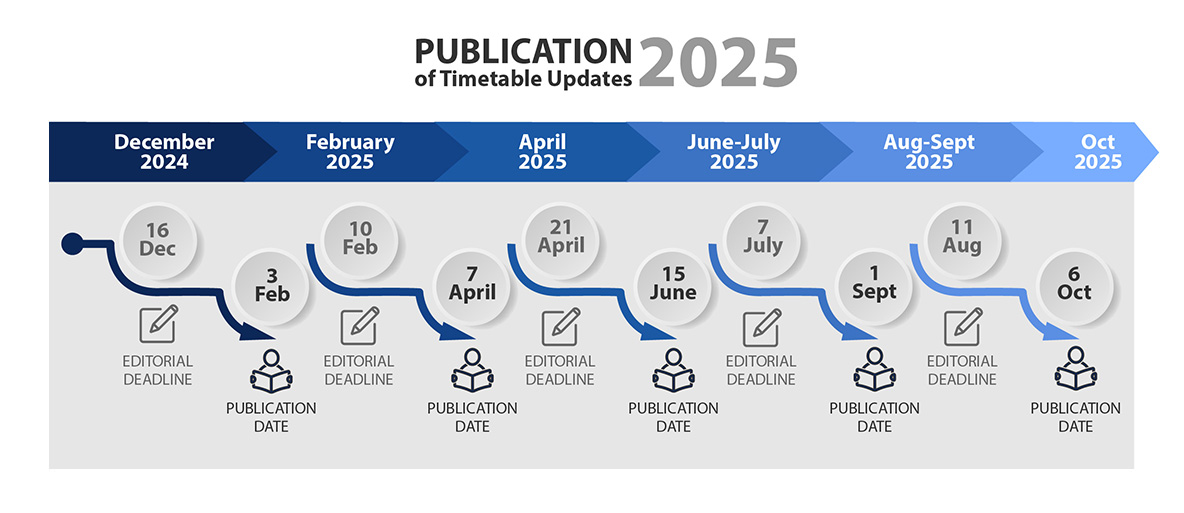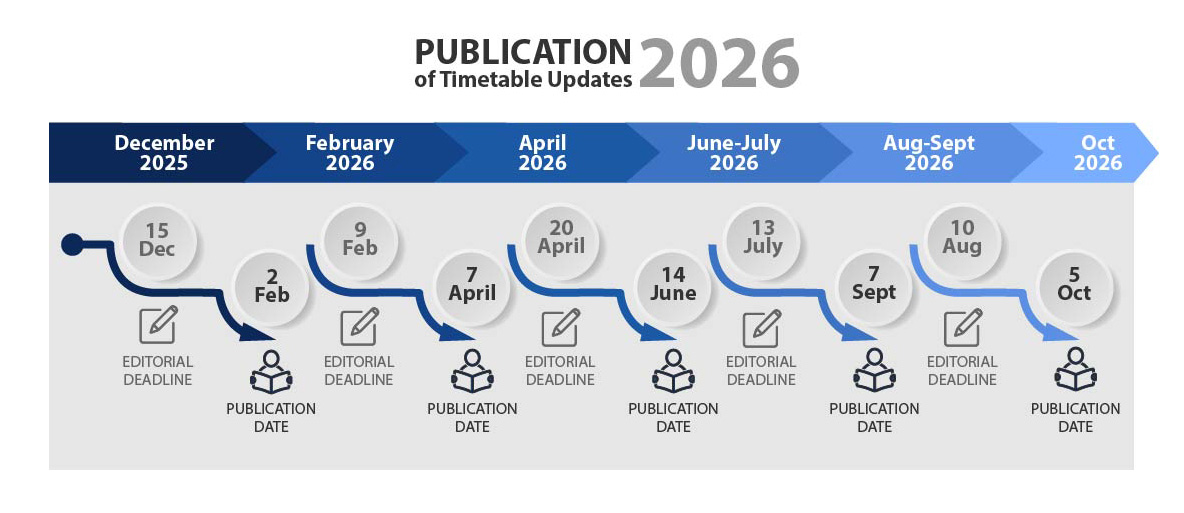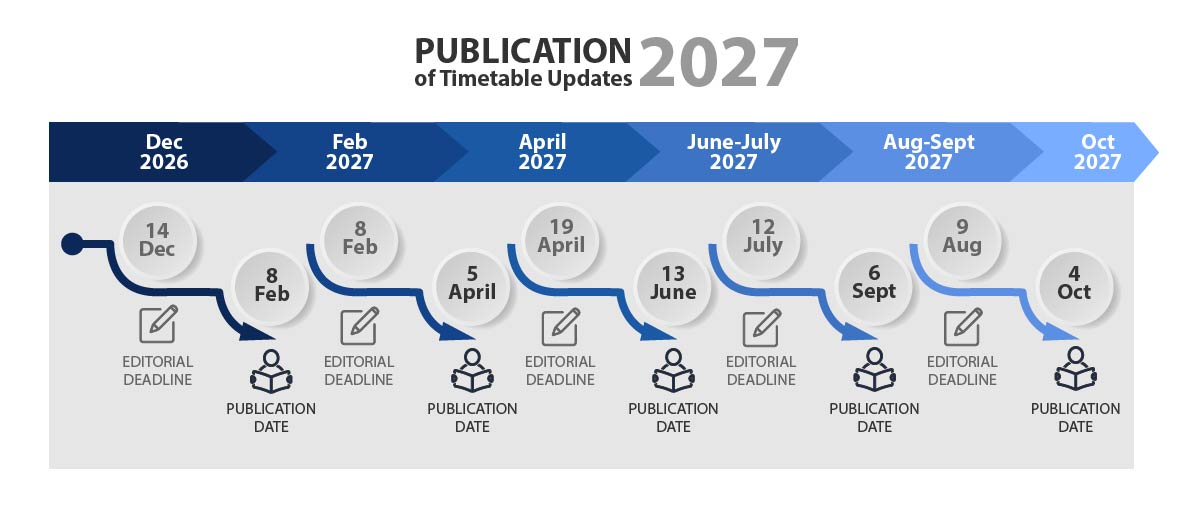Capacity Planning and Capacity Supply
Based on the final Capacity Model, IMs continue in the planning of the capacity, considering TCRs for every day of the timetable period, partitioning capacity for dedicated purposes (volumes for passenger traffic, volumes for freight traffic and TCRs), and where needed also for different product types (Annual, Rolling Planning ad hoc). The output of the first phase – the Capacity Planning phase – is visualised in the Capacity Supply. The aim of the Capacity Supply is to show, harmonise between IMs and make available to Applicants details on the capacity useable for each purpose (passenger, freight). It covers:
- Commercial share (traffic part)
- TCRs in Capacity Supply phase part
The Capacity Supply after its publication 11 months before the timetable change shall be stable and accessible for all Applicants. However, there are several triggers due to which the supply to a certain extent dynamic until the end of the running timetable. This means that capacity which has not been booked is made available for later request processes (e.g., for ad-hoc requests).
The Capacity Supplies will be made available in the European Capacity Management Tool (ECMT). TTR aims for a first-time publication for timetable period 2028 (i.e. in January 2027).
Timetabling (Capacity Requests and Allocation)
Applicants can request infrastructure capacity in the Path Coordination System (PCS) in various ways:
- Annual requests
- Placed before the path request deadline (usually before 2nd Monday of April)
- Placed after the path request deadline (‘Late Requests’; usually after 2nd Monday of April)
- Ad Hoc Requests, placed after the late requests are answered (1.25 months before the timetable change)
- In addition, Rolling Planning will introduce a new innovative type of path request which serves multi-annual demands irrespective of any timetable change and serves requests for capacity with needs that are unknown at the deadlines for Annual Timetable (ATT) requests.
Feasibility studies can be requested as a service offered by IMs to Applicants if the latter wish to have a good understanding and indication on how their paths could fit in the timetable before they place their official path requests. A response to a feasibility study request is not binding for the IMs, therefore, a feasibility study result does not present a commitment to a path’s allocation.
RNE and its Members provide common timelines for requesting and allocating capacity. The timelines are published annually in the timetabling calendar. The current calendars can be downloaded below.
- RAILNETEUROPE CALENDAR FOR 2025 (TIMETABLE 2026) – WITHOUT RFCS
- RAILNETEUROPE CALENDAR FOR 2025 (TIMETABLE 2026) – RFC CALENDAR
- RAILNETEUROPE CALENDAR FOR 2026 (TIMETABLE 2027) – WITHOUT RFCS
- RAILNETEUROPE CALENDAR FOR 2026 (TIMETABLE 2027) – RFC CALENDAR
- RAILNETEUROPE CALENDAR FOR 2027 (TIMETABLE 2028) – WITHOUT RFCS
- RAILNETEUROPE CALENDAR FOR 2027 (TIMETABLE 2028) – RFC CALENDAR
- RAILNETEUROPE CALENDAR FOR 2028 (TIMETABLE 2029) – WITHOUT RFCS
- RAILNETEUROPE CALENDAR FOR 2028 (TIMETABLE 2029) – RFC CALENDAR
Timetable Updates
Editorial deadlines and publication dates can be found in the following graphics that show the timetable updates for 2025, 2026 and 2027.


